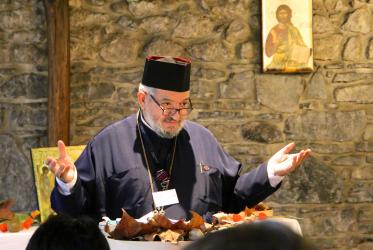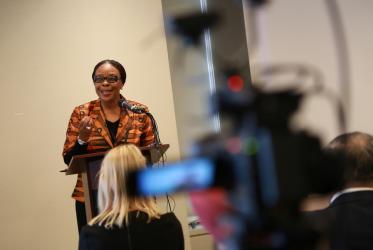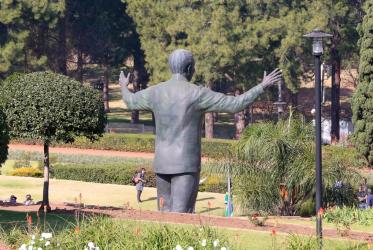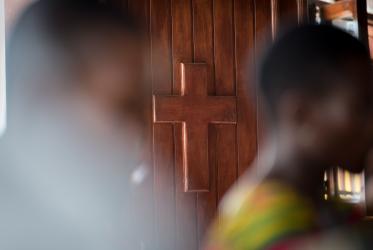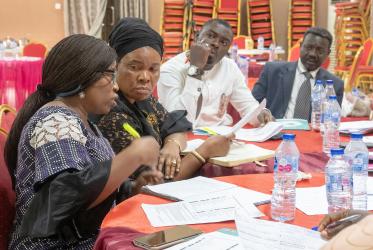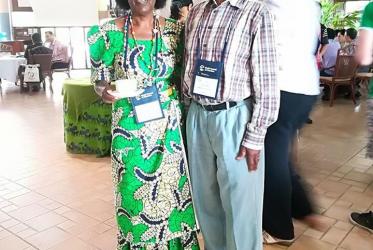Displaying 101 - 120 of 378
South Sudan Church leaders welcome new cabinet
15 March 2020
"Mission for God’s people” explored at seminar in Kenya
20 February 2020
Young Africans are eager to grapple with challenges
09 January 2020
WCC mourns passing of Prof. Vuyani Vellem
09 December 2019
South Sudan Council of Churches: peace “is a question of the heart”
11 November 2019
Churches in southern Africa stand against violence, xenophobia
10 October 2019
Kenya mourns the late Prof. Samuel John Mbiti
08 October 2019
